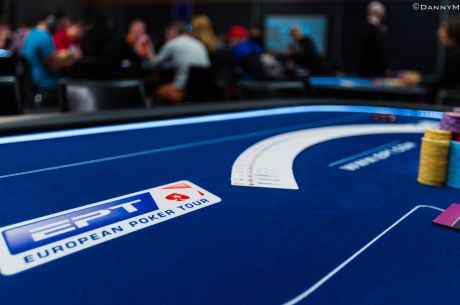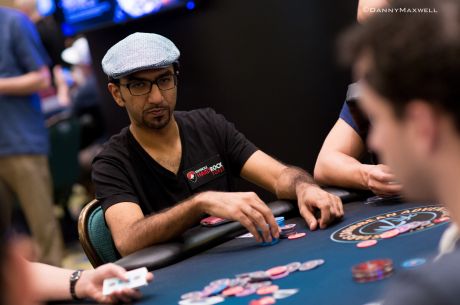More Live Poker Bankroll Management: Holding Onto Your Money

Earlier this week I wrote about how to protect your money from bad actors, and specifically how to minimize your chances of getting stolen from or robbed. But even besides these dangers and the possibilities of losing money in a poker game (or when going to and from a poker game), there are other ways to lose money in the casino.
Money can fall out of pockets or off the tops of stacks. It can be loaned and then forgotten about. It can be put in a drawer and forgotten. Once, while cleaning out a shoebox of old dusty possessions, I found an old wallet with receipts, ID cards... and a hundred-dollar bill! That was a nice surprise, but I never should have been so careless in the first place.
Here are some measures you can take to avoid losing money in these less malicious ways.
1. Double-check your cashouts at the cage
Many of us are often distracted at the end of our sessions, and this can be especially true when we have a lot to cash out. If you receive a cashout that��s $100 short while you��re distracted, there��s a reasonable chance you won��t see that $100 again �� or, at least, not without some hassle. It is standard for casinos to attempt to detect and rectify these errors, but they can��t give you the money if they can��t find you, and they are not always incentivized to devote hundreds of dollars of labor to make small errors right.
2. Photograph your stack when going on break in a tournament
Ideally, you should also count your stack exactly. If a mistake happens during a color-up or as a final pot is being pushed, this will help you establish facts and protect yourself.
3. Stack your chips neatly for easy accounting
When I was a regular in limit hold��em games, which are often played with only one denomination of chip, I played with someone who always kept an even number of red (or brown or green) chips in his stack, converting any odd chips into lower denominations for tipping. Because all pots were an even number of chips (we paid time rather than rake), this ��parity check�� gave him an easy way of detecting at least some cases of a chip��s falling off the table, sliding under the rail, or perhaps even disappearing into someone��s sleeve or tip box.
This method is not foolproof, but its effectiveness per unit of energy spent in implementation is very high. If it is feasible for you to implement such parity checks, consider doing so. At the very least, it��s an extra benefit to keeping chips in traditional stacks of 20 instead of in a big mess, as some players prefer to do.
4. Keep good records
This is already mandatory in the U.S. if you want to protect yourself come tax time, but it also allows you to detect some discrepancies. It additionally encourages you stay in the mindset of keeping track of how much money you have on hand.
5. Wear appropriate clothing
In particular, don��t put your money in pockets that don��t retain their contents when you sit down. I know that this may sound too obvious to mention. If you are rolling your eyes right now, you would be surprised at how many thousand-dollar chips have been lost by poker players due to the physics of pants pockets (combined with sheer carelessness).
6. Other things equal, have the smallest possible amount of money on you
Money that isn��t in your pockets can��t fall out of your pockets. ATMs, check withdrawals, and IOUs from trusted friends (and only trusted ones) are some vehicles for accomplishing this. You can also consider buying in to tournaments ahead of time that you know you��re going to play anyway, especially if the refund policy is flexible (as it is at the World Series of Poker, for example).
Conclusion
Such measures are a bit like wearing a seatbelt �� they��re mostly obvious and they rarely make a difference. But in those rare situations where they do make a difference, their protective effects can be enormous.
Winning at poker feels a lot better when you manage to hang on to the money you��ve won, and these steps will help you do that.
Thinking Tournament Poker by Nate Meyvis is now available both at Amazon and at nitcast.com. Be sure also to check out Nate and Andrew Brokos on the Thinking Poker podcast, and for more from Nate visit his blog at natemeyvis.com.
Want to stay atop all the latest in the poker world? If so, make sure to get PokerNews updates on your social media outlets. Follow us on Twitter and find us on both Facebook and Google+!









